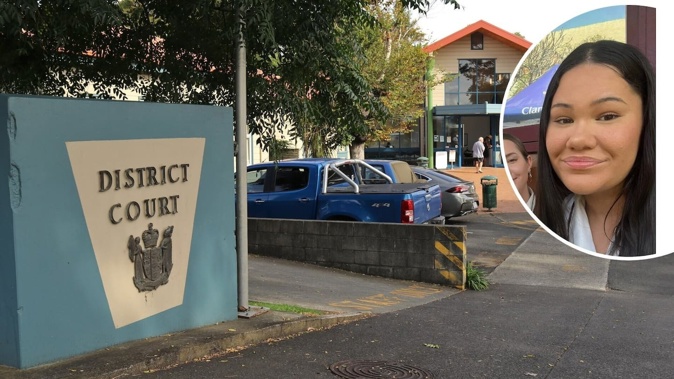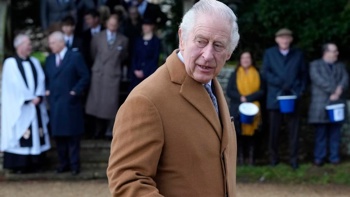
- A woman who assaulted and verbally abused Māori teenager Aneta Jones at a Northland beach received permanent name suppression.
- Judge Michelle Howard-Sager convicted the woman and ordered a $600 emotional harm reparation.
- Jones opposed the suppression and sought community service washing dishes at a local marae, highlighting the incident’s lasting impact on her.
A woman who assaulted and hurled verbal abuse - including racial taunts - at a Māori teenager at a popular Northland beach has been given permanent name suppression.
It is a decision which has upset her teen victim, who wanted her to be named and made to do community service on a marae.
The woman, 63, pleaded guilty to assault before Judge Michelle Howard-Sager in the Kaitāia District Court in February.
She was given interim name suppression until a disputed facts hearing, that had been set down for July 7.
But the matter was called in Kaitāia District Court on Thursday, May 15, after a request from the woman’s lawyer Jonathan Natusch.
The woman admitted assaulting Aneta Jones who was part of a whānau group having a day at Little Cable Bay in January.
The group alleged the woman became hostile after she was asked to leash her dog, which had been frightening young babies.
At the May 15 hearing, Judge Howard-Sager sentenced the woman and ordered her to pay reparation of $600. The maximum penalty for common assault is 12 months’ jail.
Jones - who returned to Australia following the incident – and police, opposed permanent name suppression.
Jones said she wanted the woman named and shamed.
 Northland beach assault victim Aneta Jones, right, wanted her offender to complete voluntary work on a marae. Photo / Supplied
Northland beach assault victim Aneta Jones, right, wanted her offender to complete voluntary work on a marae. Photo / Supplied
“If she is to receive community service I believe she would benefit from community service work at a marae or at a Māori charity, and perhaps she will learn that Māori people are not ‘uneducated cannibals’ but instead caring people, human beings who deserve respect, something that was clearly lacking in the way she treated me,” Jones, 18, said in her victim impact report.
She was with her uncle, Northland Regional Councillor Peter Lucas-Jones, and her whānau on the day of the assault.
“That day at Cable Bay, I approached a woman named [name suppressed] to politely ask if she could either leash her dog or play with it further away from our family tent,” the victim impact report read.
“At the time, we had two babies, one 6 months old and the other 7 months old, as well as a 4-year-old in our care. Her unleashed dog had run directly toward our tent and our babies after she threw a frisbee.
“I was concerned for the safety of our mokopuna, especially with the rise in dog-related attacks. I calmly approached her, thinking it was a reasonable and respectful request to leash her dog or play with it further away.”
“She called me a “fat Māori b****” multiple times, shouted “uneducated cannibals” at me and my whānau, and demeaned my heritage and culture."
- Teenage victim Aneta Jones
Jones said instead of reacting with kindness, the woman responded by “physically assaulted me, pushing and shoving me, and immediately began yelling racial slurs”.
“She called me a ‘fat Māori b****’ multiple times, shouted ‘uneducated cannibals’ at me and my whānau, and demeaned my heritage and culture. She yelled things like ‘this isn’t a Māori beach’ and made a dismissive comment about Ngāti Kahu, calling us ‘entitled’.
“Her behaviour was shocking and humiliating. I had just come from mourning my grandmother Ani Taniwha at her tangihanga. I was grieving, and to be met with this kind of hatred while standing up for the safety of our babies was deeply traumatic.”
Jones, who returned home to Australia in February, said she is having ongoing issues.
“This experience has left a mark on me and my trust in how safe I can feel in public.”
 Peter-Lucas Jones and his whānau who were at beach when they incident happened. His niece Aneta Jones is at the back. Photo / Supplied
Peter-Lucas Jones and his whānau who were at beach when they incident happened. His niece Aneta Jones is at the back. Photo / Supplied
She told the court the incident would have a “lasting impact” on her.
She wrote she opposed name suppression as she believed it would “only serve to protect her from accountability”.
Joseph Los’e is an award winning journalist and joined NZME in 2022 as Kaupapa Māori Editor. Los’e was a chief reporter, news director at the Sunday News newspaper covering crime, justice and sport. He was also editor of the NZ Truth and prior to joining NZME worked for urban Māori organisation Whānau Waipareira.
Take your Radio, Podcasts and Music with you









